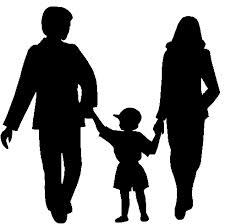What does “It Takes a Village to Raise a Child” mean to you?
What I know first-hand about childhood is that mine didn’t happen in a nurturing environment, so I sought and received approval and support from the loving parents of my childhood friends. They were, and still are, my village. It doesn’t take an expert in child psychology to understand that children need to feel safe, supported, and to be nurtured as they develop into the people they are destined to become. A sense of belonging within a family,  and feeling part of a community are foundations children can build on as they grow, and these provide safe havens from which they can venture forth, and return to when they have ventured too far. The village can be the family, other neighborhood children or, as was the case for me, supportive parents of other children within the community.
and feeling part of a community are foundations children can build on as they grow, and these provide safe havens from which they can venture forth, and return to when they have ventured too far. The village can be the family, other neighborhood children or, as was the case for me, supportive parents of other children within the community.
Do you know of a child who is rejected by his peers, community or family members, or seems to be on the outside, looking in?
I was not born with gender dysphoria, and I don’t think I ever knew a child who was born with it, so I don’t have a child’s perspective on coping with a physical condition that I and others, find hard to understand.
I am a mother, though, and my perspective on parenting comes from being a parent, and now a grandparent. As parents our approach to raising a child is often informed by the ways in which we were raised. I was not the perfect parent, I don’t think anyone is, but parenting a well-adjusted transgender child starts with the same basics as parenting a non-transgender child – love, support, encouragement, and most of all, patience, and empathy. The last is vital to your  child. If your child hurts, you hurt for them. if your child has fears, you try to calm them. If your child has questions, you try to answer them honestly. Then you send them out into the village to learn how to adapt, communicate with others, and become contributors to the community where they live. As parents we hope the foundation we have provided is strong enough to support our child as he/she navigates the world outside our home.
child. If your child hurts, you hurt for them. if your child has fears, you try to calm them. If your child has questions, you try to answer them honestly. Then you send them out into the village to learn how to adapt, communicate with others, and become contributors to the community where they live. As parents we hope the foundation we have provided is strong enough to support our child as he/she navigates the world outside our home.
Children born with gender dysphoria often find themselves shut out of the village, unable to relate to, or be related to, by other children or adults. Gender dysphoric children are not alone, children can be made to feel different from other children for all kinds of reasons. For some children, though, the feeling of differentness is magnified because it comes from within, for instance, a gender dysphoric child is not able to identify with the bodies they are born with. The challenge transgender children face is how to fit in, how to be a part of the village, how to gain entry in order to gain acceptance.
More often than not they are treated as outsiders – by other parents in the community, the school system, and society at large.
How do we, the members of the village, help a transgender child – or any child who is slightly different from the other children in their community- live among us without fear of rejection?
Several transgender readers, and a transgender friend, have told me that it is vitally important for transgender children to be accepted for who they are, and not forced into a mold to match the bodies they are born with. It is also important, they say, that the parents of a transgender child understand that this is a medical issue, that blame or guilt have no place in the household, because nobody did anything wrong.
If you are the parent of a transgender child, how is your family impacted, and how have you learned more about providing the support your child needs?
If you are gender dysphoric, if you know someone who is, or if you simply want to learn more about the issue, please join me in this online conversation. I welcome your comments below.


